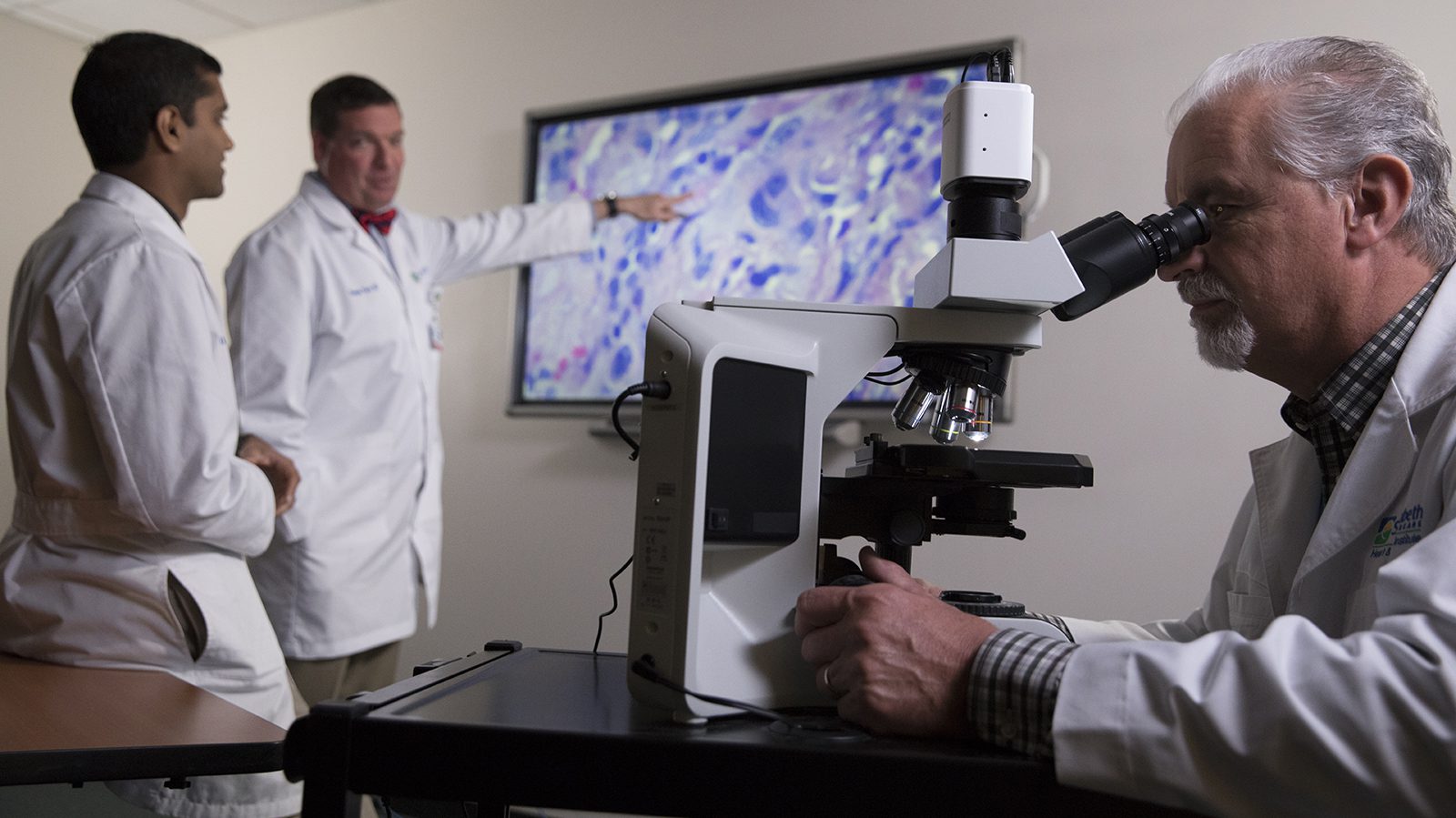Stomach Cancer
Stomach cancer starts in lining of the stomach and spreads through the stomach as it grows. The cancer cells usually form a tumor within the stomach. Stomach cancer can spread nearby into the liver or esophagus. It can also spread to the lymph nodes or blood vessels and then to other areas of the body.
About Stomach Cancer
Risk Factors for Stomach Cancer
There are a number of risk factors for developing stomach cancer, including:
- Family history of gastric cancer.
- Medical conditions such as anemia, helicobacter pyloria infection, chronic stomach inflammation and gastric polyps.

Make an appointment
For more information, please contact your oncologist or the Cancer Care Center at (859) 301-4000.
Causes of Stomach Cancer
Stomach cancer is caused when healthy cells within the digestive system become cancerous and grow, usually forming a tumor. Stomach cancer tends to develop over many years.
Symptoms of Stomach Cancer
Symptoms of stomach cancer include:
- Abdominal pain or swelling.
- Belching or burping.
- Blood in stool.
- Indigestion.
- Heartburn.
- Jaundice (yellowing skin).
- Loss of appetite.
- Trouble swallowing.
- Unexplained weight loss.
- Vomiting.
Diagnosing Stomach Cancer
If your doctor suspects that you have stomach cancer, we may run tests to determine the stage of cancer to develop the best treatment plan. These tests may include:
- Barium swallow with X-ray.
- Blood test.
- CT scan.
- Endoscopy.
- MRI.
- PET/CT scan.
- Ultrasound.
Treating Stomach Cancer
At St. Elizabeth Healthcare, we believe in caring for you, not just treating your cancer. Our holistic approach means we combine cancer treatment with working to minimize side effects and help you manage them. Our goal is to make you as comfortable as possible while we use innovative approaches to treat your cancer.
Your treatment plan for stomach cancer usually begins with surgery and uses a combination of other treatments depending on the stage of your cancer or if it has spread. Your treatment may include:
Preventing Stomach Cancer
Lifestyle changes can lower your risk of stomach cancer. These include:
Your Cancer Care Team
The team includes medical oncologists specializing in immunotherapy and precision medicine, surgical oncologists, radiation oncologists, interventional radiologists, thoracic surgeons, pain management specialists, genetic counselors, pathologists, nutritionists, pharmacists, nurses and support staff. They work together to create a treatment plan that’s just right for you.


